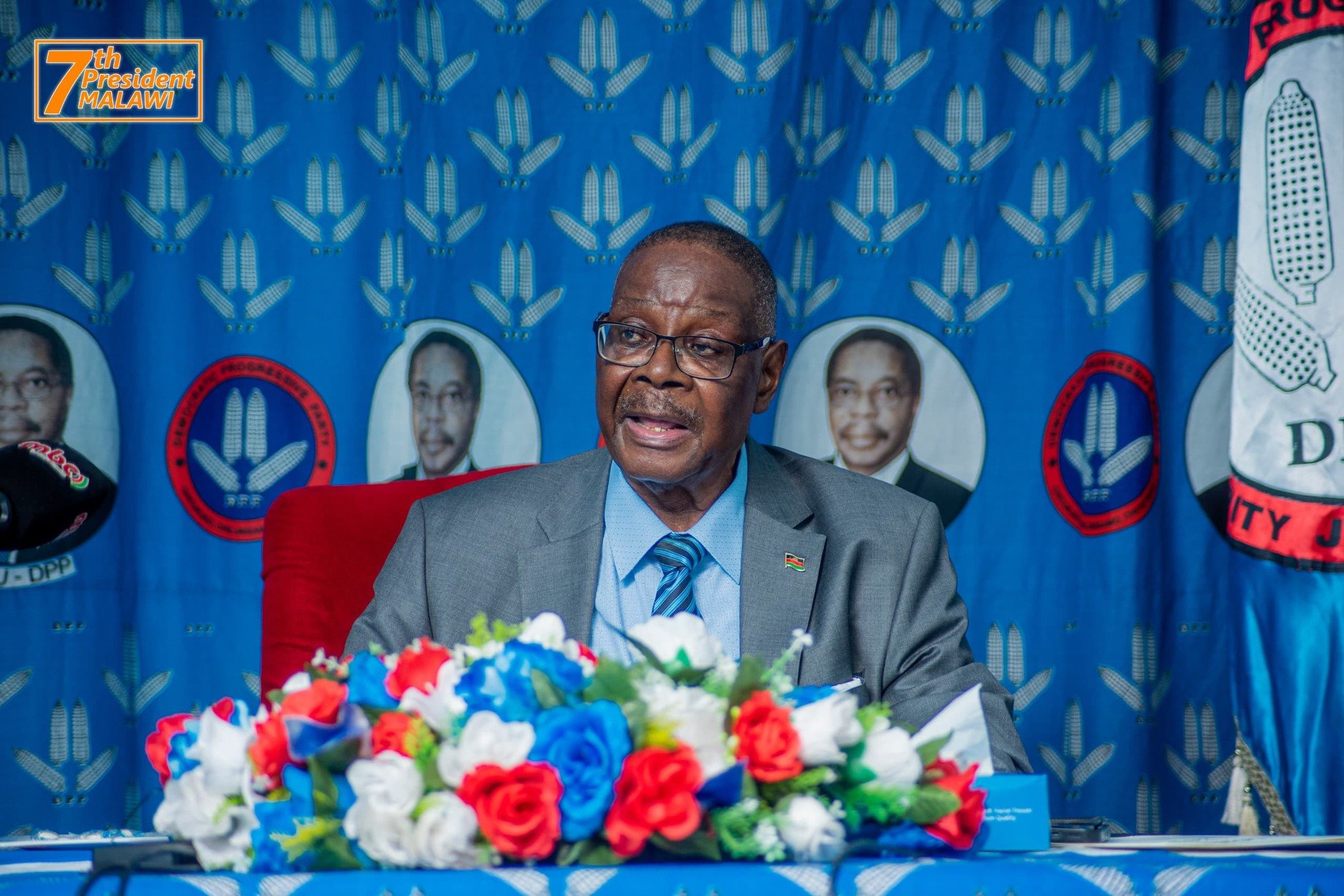A Second Script for Peter Mutharika: Will He Rewrite His Legacy?
History does not often offer second chances—but it has for Peter Mutharika. Once dismissed as a failed president, scarred by corruption, arrogance, and electoral shame, he now stands before a rare opportunity to rewrite his legacy. Will he redeem himself and finish as one of Malawi’s great leaders, or will he squander the kindness of history? Writes Ephraim Nyondo.
_________________________________________
History, they say, rarely opens the same door twice.

But for Professor Arthur Peter Mutharika, history has bent with unusual kindness—offering him a chance to rewrite his script, to edit the messy chapters, and perhaps to pen a redemptive ending that will outlive all the failures of his previous stints in public leadership.
Malawians, weary of broken promises and failed experiments in governance, have turned their gaze backwards, unexpectedly, to the man they mercilessly booted out of State House, just 5 years ago, with his popularity at rock bottom.
What does it mean that Peter Mutharika is back? It means one thing: history has given him the rarest of gifts—a second chance.
At a personal level, Mutharika has always been an achiever. By 28, he had a PhD in Law from the prestigious Yale University in the United States. His career as an academic stretched across continents, lecturing in distinguished universities. Back home, he played a defining role in Malawi’s legal architecture, contributing to the drafting of the 1994 Constitution and leading later review processes. In 2001, he even championed a national debate on federalism, daring to imagine new structures for governance. On paper, this is the stuff of brilliance, of someone cut for statesmanship.
Yet, politics humbled him.
His early years in government—first as advisor to his brother Bingu wa Mutharika, then as cabinet minister—were stained by scandal and missteps. As Minister of Foreign Affairs, Malawi’s relations with the UK collapsed in a bitter diplomatic spat. At Education, the University of Malawi shut down for more than a year over the Academic Freedom standoff. His name became tied to whispers of opulence and questionable property acquisitions.
Then fate thrust him higher.
After Bingu’s death, it was Peter who inherited not just the Mutharika name but the burden of resuscitating a bruised Democratic Progressive Party (DPP). Against all odds, he rebuilt the party, reclaimed power in 2014, and carried the Mutharika brand into State House. But once there, the promise of his intellect dimmed under the weight of executive arrogance, corruption scandals, ethnic nepotism, and brazen political violence.
By 2019, his infamous “tippex victory” was nullified, and relentless protests battered his image. He left office in 2020 not as a statesman, but as a man defeated, unloved, and dismissed.
And yet—here we are. Time has been kind.
For as Lazarus Chakwera’s leadership stumbled, as the economy broke under shortages of forex, fuel, and trust, Malawians began to look backward with surprising nostalgia. They began to see in Mutharika not just his failures but the relative stability of his reign. On 16th September, his return to politics confirmed one reality: the story isn’t over.
This is the moment where history pauses and whispers—will you rewrite your ending?
Because the truth is this: history remembers more how you finish than how you start. Mutharika’s academic brilliance, his role in Malawi’s constitutional birth, even his initial presidential gains—they are footnotes. What matters now is whether he can turn this rare second chance into redemption. Can he lead not with arrogance, but with humility? Not with nepotism, but with inclusivity? Not with indulgence, but with discipline?
Malawi has given Peter Mutharika a gift no leader should take lightly: the chance to revise his legacy. Few leaders are granted such grace. If he is wise, he will seize it—not for himself, but for a country desperate for renewal.
For in the end, history is not kind to excuses—it is kind only to those who rise from failure and write a better conclusion. Because, as already said, history rarely opens the same door twice.
__________________________________
Ephraim Nyondo is a historian, a seasoned journalist and a former columnist for The Nation newspaper. He writes in his personal capacity.
Follow and Subscribe Nyasa TV :
